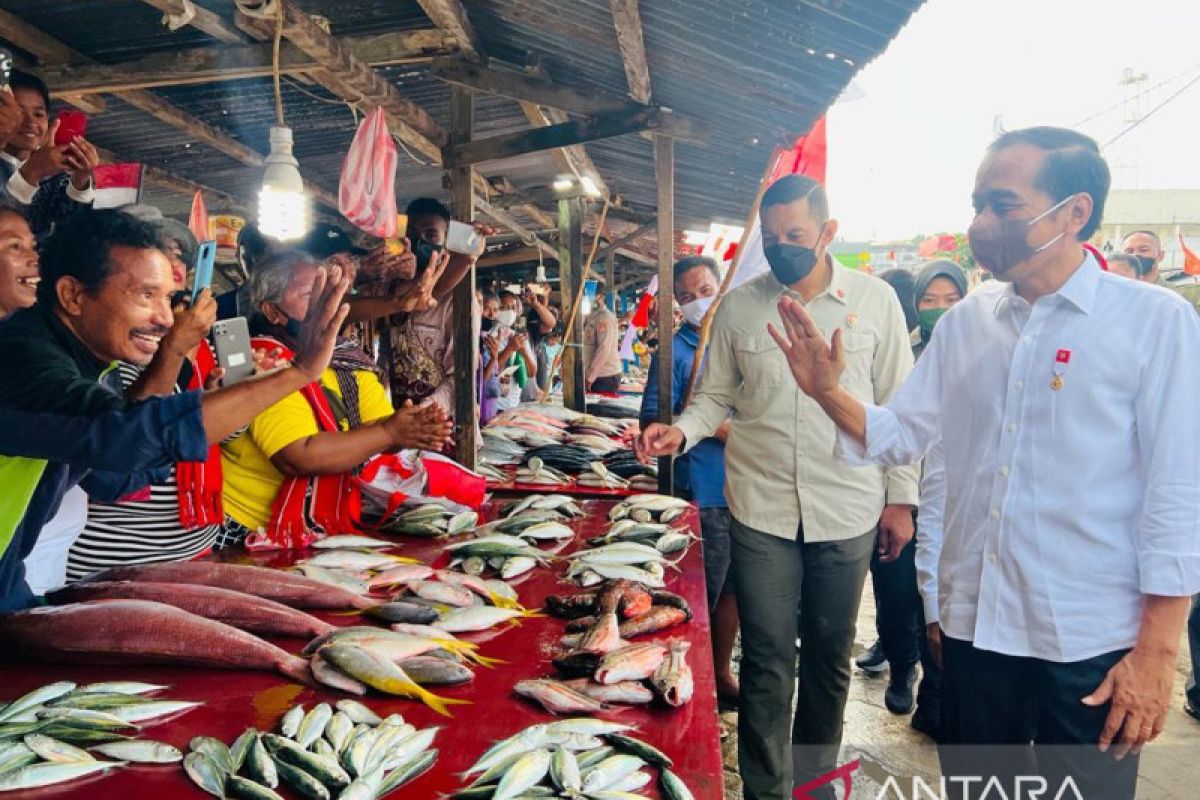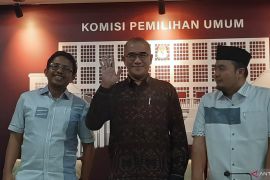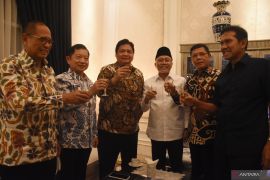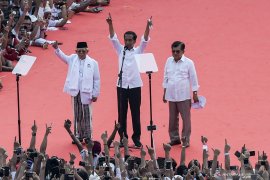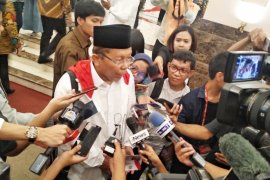The Nawacita vision was introduced to the public during his first presidential campaign back in 2014, with Jusuf Kalla as his running mate. His successful presidential bid gave him the opportunity to materialize his visions into reality.
As his re-election bid in 2019, with Ma’ruf Amin as his running mate, went successful, the president has the opportunity of another five years to realize his vision.
Despite its tenets no longer being promoted as fervently as during his first presidential term, the president remains faithful to his Nawacita vision, as was apparent during his working visit to Saumlaki, Maluku, on September 1-2, 2022.
The 124.1-square kilometre Saumlaki region is the capital of Tanimbar Islands District, Maluku. Saumlaki, located on the province’s Yamdena Island, was established following its parent district's separation from Southeast Maluku District in 2002. According to the Statistics Indonesia (BPS) data, Tanimbar Islands District is Maluku’s southernmost district that borders the Australian waters.
Saumlaki City's position is strategic owing to its proximity to Australia. The distance between Saumlaki and Australia’s northernmost major city, Darwin, is closer than its distance to the national capital, Jakarta.
Saumlaki City and Tanimbar Islands District, like other Indonesian regions with similar characteristics, have received significant attention from the central government committed to developing the border regions.
Bolstering development in border regions is consistent with the third tenet of the Nawacita to develop Indonesia from its borders by enhancing regions and villages within the framework of the unitary state. The vision to developing Indonesia from its borders has been included in the current Middle-term National Development Plan (RPJMN).
The tenet means that Indonesia must expedite its decentralization to ensure regional authorities, who understand their local conditions, have a greater say in regional development. Decentralization also means that development must spread across Indonesia and not only be centred in urban centres.
Not merely in the economic sector but the goals enumerated in the Nawacita principle also include the development of other national sectors.
The Nawacita envisions a continued commitment to free and active diplomacy, security and defence development, consolidation of democracy, reforms in the law enforcement ecosystem, and improvement of residents’ quality of life through land reform and housing provisions.
Moreover, the president’s nine goals also envision the enhancement of residents' productivity and economic independence, national character revolution, and social harmony through the unity in diversity principle.
During his visit to Saumlaki, the president affirmed to accelerate development in border regions. He also ensures that various potentials in the food sector are absorbed by Saumlaki residents, thereby helping them to fulfil basic needs and provide sufficient nutrient to the children.
Jokowi also visited the Wermomolin Drink Water Supply System installation developed in Tanimbar Islands. His vision is to enhance the quality of life of border residents by ensuring water supply is materialized by the development of the facility.
The president then reiterated his commitment to expediting the development of oil exploration at the Masela Block which, once in operation, will ensure increased regional revenues that benefit the Tanimbar Island District's residents and Maluku Province.
President Jokowi’s visit to Saumlaki augmented the success in improving access to the border region, particularly with the presence of the Mathilda Batlayeri Airport in Saumlaki.
Jokowi boarded the BAE 146-200 aircraft operated by state-owned oil company Pertamina subsidiary, Pelita Air service, during his journey to Saumlaki from Timika Airport, Papua. The quadjet short-haul aircraft seamlessly landed at Mathilda Batlayeri Airport, again proving its capability to cater to transportation and access to and from the region.
According to Mathilda Batlayeri Airport Head Akhmad Romi, two domestic airlines have committed to operating flights to and from Mathilda Batlayeri Airport with large aircraft.
At present, the airport has a single 2,300-metre runway with a width of 45 metres and apron of 200x75 metres. A project to improve the runway support capacity is ongoing, as the airport is expected to accommodate larger aircraft.
The airport operator is also committed to ensuring the region remains accessible to the rest of the world by assuring strict adherence of transportation industry actors to government regulations.
The airport management recently lodged a complaint against a private airline suspected of violating the ceiling price of flight tickets on the Ambon-Saumlaki route, he added.
Romi stated that if flight tickets are too expensive, then residents will hesitate to use air transport, and regional connectivity will be hindered.
Saumlaki has become a testament to President Jokowi’s persistence to developing border regions as envisioned in his Nawacita vision. Various developments have been bolstered in Tanimbar Islands District to enhance the quality of life.
Moreover, success and historical assessment of a president would be based on how his policies will benefit the people in the short or long run. With his Nawacita vision, Jokowi still has time to realise his vision to achieve a better Indonesia.
Related news: Abadi LNG project in Masela Block should begin soon: President
Related news: Fuel cash aid to maintain people's purchasing power: Jokowi
Related news: PUPR Ministry encourages housing development in outermost islands
Translator: Nusarina Y, Nabil Ihsan
Editor: Sri Haryati
Copyright © ANTARA 2022
